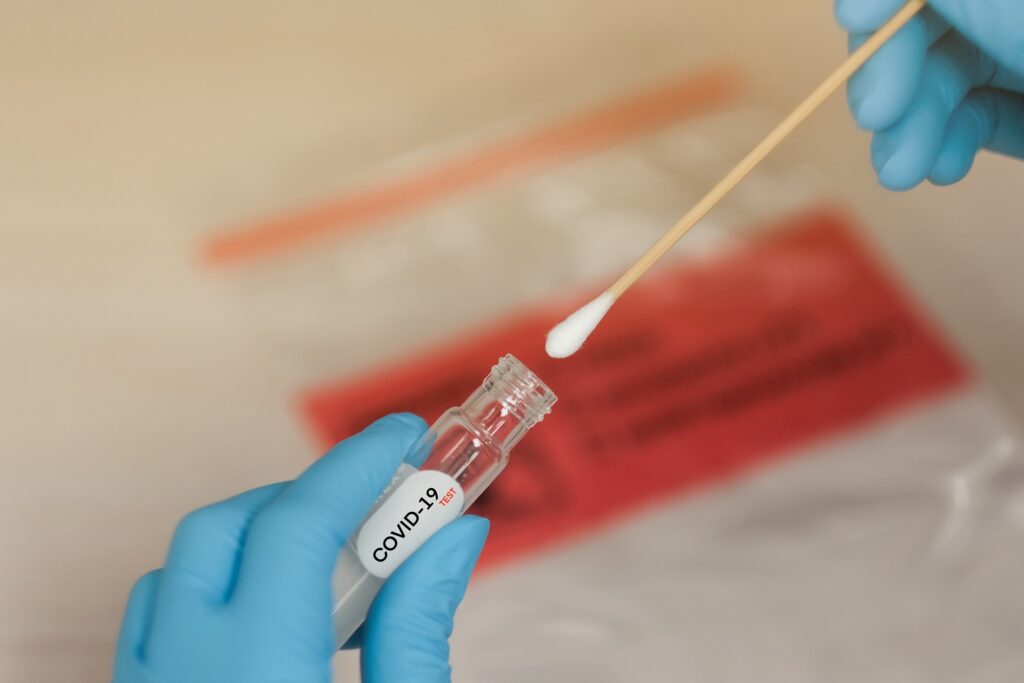
How long does it take to get results for a COVID-19 antigen test?
This COVID-19 test detects certain proteins in the virus. Using a long nasal swab to get a fluid sample, some antigen tests can produce results in minutes. Others may be sent to a lab for analysis.
How accurate are COVID-19 PCR tests?
PCR tests are very accurate when properly performed by a health care professional, but the rapid test can miss some cases.
Do I need to report positive self-test results for COVID-19?
While there are no current mechanisms that require reporting of self-test results to public health authorities, CDC strongly encourages everyone who uses a self-test to report any positive results to their healthcare provider.
Is it possible to get a false positive test result for COVID-19?
It's possible to have a positive test result even if you never had any symptoms of COVID-19 . False-positive test results can occur. It may be that the test detected antibodies to a coronavirus closely related to the COVID-19 virus or that the test quality was flawed.
Can a COVID-19 RT-PCR test be falsely negative?
RT-PCR tests are not perfect, Alland said. “After the first week of infection, there is a decline in virus shedding in the respiratory tract, where tests can become falsely negative,” he said.
Which COVID-19 tests are more accurate PCR or antigen tests?
PCR tests are more accurate than antigen tests. "PCR tests are the gold standard for detecting SARS-CoV-2," says Dr. Broadhurst. "It is the most accurate testing modality that we have.
Who is responsible for reporting COVID-19 tests?
The testing site that performs the COVID-19 test is responsible for reporting to the appropriate state or local public health department.
How long are you contagious with COVID-19 after testing positive?
According to the CDC, data suggests patients with mild-to-moderate COVID-19 remain infectious no longer than 10 days after symptom onset. Those with severe-to-critical illness stemming from a COVID infection likely aren't infectious 20 days after symptoms first begin.
When should I leave isolation after testing positive for COVID-19?
If you do develop COVID-19 symptoms, isolate for at least 5 days from the date your symptoms began (the date the symptoms started is day 0).
What does a false-positive COVID-19 antigen test result mean?
A false-positive antigen test result means that the test says the person has COVID-19 but they are actually do not have COVID-19.
What can cause a false positive COVID-19 rapid antigen test?
The investigators also point out that false-positives are possible due to administering the test too early or late in the infectious stage, or from incorrectly performing the self-test.
Can someone get a false positive COVID-19 test result with BinaxNOW COVID-19 antigen test?
There is a very small chance that this test can give a positive result that is wrong (a false positive result). Your healthcare provider will work with you to determine how best to care for you based on your test result(s) along with your medical history, and your symptoms.
Why PCR is better than the rapid COVID-19 test?
“PCR tests are more reliable and accurate due to testing the specific genetic material of the virus, eliminating the interference from other viruses,” said Heather Seyko, a Laboratory Services manager for OSF HealthCare.
Can a PCR test detect the COVID-19 Omicron variant?
The good news is that, according to the World Health Organization (WHO), PCR and rapid antigen tests can still detect Omicron as well as previous variants.
What is the most accurate diagnostic test to detect COVID-19?
Reverse transcription polymerase chain reaction (RT-PCR)-based diagnostic tests (which detect viral nucleic acids) are considered the gold standard for detecting current SARS-CoV-2 infection.
When should you take a COVID-19 PCR test instead of a rapid antigen test?
“PCR would be chosen where there is a low likelihood of having the virus, but we want to be certain the patient doesn't have it. Antigen would be chosen if there is a high probability the patient has the virus (i.e. is experiencing symptoms), and we need to screen the patient as positive or negative,” Heather said.